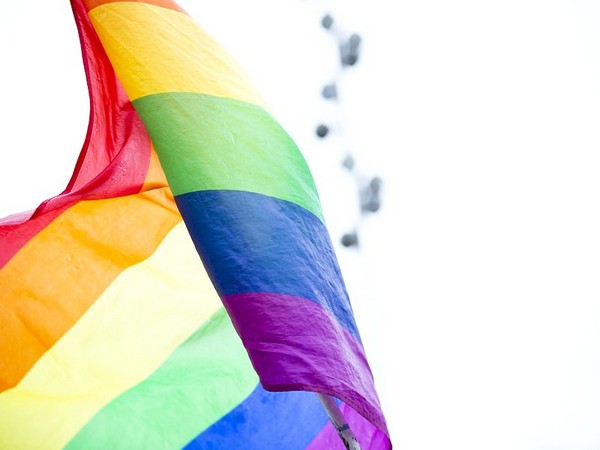Cuba marks Latin America's first LGBTQ+ history month
* Communist-run Cuba to host dozens of LGBTQ+ events in May * Organizers hope milestone will help erode discrimination * Religious opposition has put brakes on rights gains Cuba has become the first Latin American country to celebrate LGBTQ+ history month, with advocates hoping the milestone spurs other nations to mark old wins and prevent new discrimination.

* Communist-run Cuba to host dozens of LGBTQ+ events in May * Organizers hope milestone will help erode discrimination
* Religious opposition has put brakes on rights gains By Nico Lang
Cuba has become the first Latin American country to celebrate LGBTQ+ history month, with advocates hoping the milestone spurs other nations to mark old wins and prevent new discrimination. Dozens of events are scheduled throughout May, said founder Raul Perez Monzon, a historian and assistant professor at the University of Havana.
Lectures, panel discussions, workshops, and more will "promote inclusion" and "reflect on current issues in our country," Perez said in an email. "LGBTQ+ History Month is intended to help eliminate many years of discrimination," he added.
"LGBTQ+ people have been afraid to call attention to themselves for fear of consequences, such as verbal abuse, attacks, and exclusion." Organizers say the event marks an important first.
None of the 13 countries that have so far marked the month, from Australia to Canada, is majority Spanish-speaking. CUBAN WAY
Legal persecution and social exclusion were once the norm for many LGBTQ+ people in mainly Roman Catholic Cuba, which has been governed by the Communist Party since 1959. In the 1960s, under then-President Fidel Castro, some gay men were sent to forced labor camps known as Military Units to Aid Production for what the government called "re-education."
But LGBTQ+ campaigners say the island has since made strides. In 2008, its National Center for Sex Education said it would offer free gender-confirmation surgery to transgender patients.
Lawmakers banned workplace and housing discrimination based on both sexual orientation and gender identity in 2013. Yet the inaugural history month could still meet resistance from conservatives https://www.openlynews.com/i/?id=73b9454a-0df8-4c67-9f74-458f7490519a, including from some religious groups.
Changes that would have allowed same-sex marriage were scrapped https://www.openlynews.com/i/?id=4d01abaa-3955-4c08-9b08-da79bb208723 in 2018 due to religious opposition. At the time, Santiago de Cuba Archbishop Dionisio Garcia referred to LGBTQ+ rights as "ideological colonialism" and said that legalizing marriage equality would result in "regrettable consequences."
Cuba is holding consultations on the thwarted amendment, with lawmakers expected to revisit the issue in December. Juan Carlos Gutierrez Perez, a professor at the University Marta Abreu of Las Villas and a festival co-organizer, said a "great wave of conservative religious fundamentalism has been developing in Cuba" in recent years.
"It is not an endemic phenomenon in Cuba but Latin America and the rest of the world, too," Gutierrez said. Representatives from the Roman Catholic Church in Cuba, the island's largest religious denomination, did not respond to a request for comment.
An estimated 60% of Cubans identify as Catholic. GOING GLOBAL
At least a dozen countries - from Canada to Finland, Hungary to Britain - have marked their LGBTQ+ heritage since Rodney Wilson organized the world's first LGBTQ+ history month in the United States in October 1994. "This is extraordinary exposure, and it's had a really important impact," Wilson said. "It provides at least once a year an excuse to take a spotlight out and shine it on these stories, these people and their history."
The aim now is to spread the word wider, with a committee of members from New Zealand to Norway exploring participation. "It's an exciting time," Wilson said. "We are recognizing more globally the idea of shared and sustained history."
Cuba is not the only newcomer this year. Italy held its first LGBTQ+ history month in April, half a century after the country's first protests for LGBTQ+ equality when activists picketed a medical conference in the city of Sanremo that had declared homosexuality as "deviant."
Alessio Ponzio, a history professor at the University of Saskatchewan and co-founder of Italy's history month, said the goal was in part to influence the present and shape the future. "We're trying to begin a cultural revolution," Ponzio said.
(This story has not been edited by Devdiscourse staff and is auto-generated from a syndicated feed.)
ALSO READ
Defiance in the Flames: Tristin Perez's Story of Courage Amid the Eaton Fire
BAFTA 2025: 'Conclave' and 'Emilia Perez' Lead Nominations
Supreme Court Upholds Donation of Communist Leader's Body for Educational Use
Emilia Perez Leads Academy Award Nominations with Musical Brilliance
Streaming Giant Netflix Eyes First Best-Picture Win with 'Emilia Perez'










